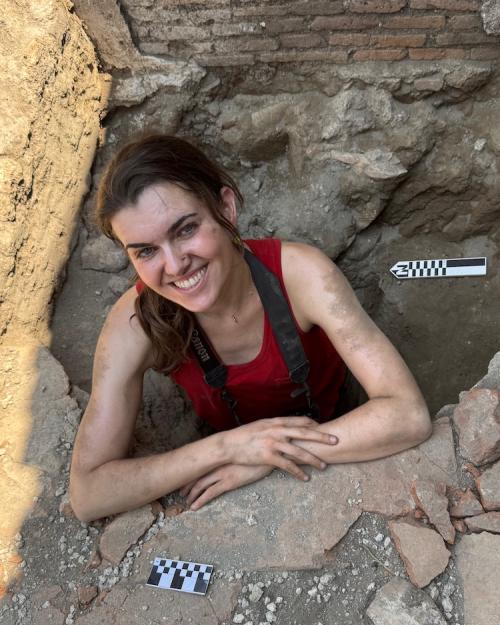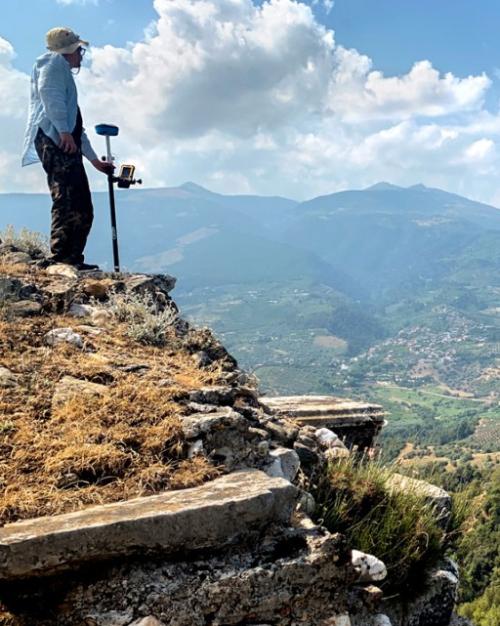Nicole Giannella, Assistant Professor in the Department of Classics, will be teaching CLAS 2806 Roman Law in Spring 2020.
When asked what she was most looking forward to about the course, Giannella said, “I love teaching Roman Law; this is the third time I’ll be teaching it at Cornell. What I really like about the course is that, perhaps surprisingly, it’s pretty accessible and so it’s the class that I get the most student interaction in. I think this is because it’s really a class on developing and practicing legal reasoning skills—we’re all just puzzling through cases together—so there’s no prior knowledge of law or Roman history needed.”
Because the course does not require any prior knowledge, students from all departments are welcome to enroll. Although the topic of Roman law will certainly be of interest to students of Classics and History, Gianella explained how it might be useful for others as well: “The course really focuses on improving legal reasoning skills and studying the development of a system of justice. To put Roman law in its historical context, it is the foundation of law in several places across the globe including countries in Europe and Latin America, and also the state of Louisiana. So I think this course is potentially interesting to anyone who is curious about the history of law and developments of justice and civil rights either in one of these particular places or abstractly.”
The course will focus on the 1st to 3rd centuries C.E., known as the “classical period of Roman law”. Students will read a variety of Roman legal sources. When asked about some of her favorite sources for teaching Roman law, Giannella said, “There are some really excellent casebooks that Bruce Frier out of the University of Michigan and Thomas McGinn out of Vanderbilt have put together that are geared toward teaching Roman law to the American undergraduate population. This is nice because if you just crack open the Digest of Justinian (the 6th c. CE anthology of excerpts of the top jurists—our main source of classical Roman Law) it can be a bit unwieldy. The Digest is about 1.5 times the size of the Bible, and they’ve done a great job picking and choosing, organizing, and explaining interesting and foundational cases.”
Giannella has taught this course twice before, but looks forward to adding a new unit on animal law this time. On her plans for this new unit, she said, “Last time we spent a lot of time talking about what exactly constitutes theft. I’m sort of building on that in this class by doing a unit on animal law. Animal law is interesting because it brings up questions firstly of intentionality and liability—who’s guilty if an ox breaks something? The owner? The person driving the oxcart? The ox?— and also the difference between wild animals and domesticated animals—can anyone actually own a wild animal, and if not, can they ever be stolen?”
Roman Law is open to all undergraduates and will meet MWF from 10:10 to 11:00.





